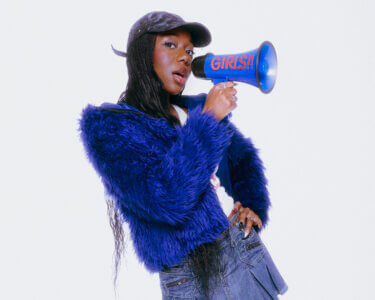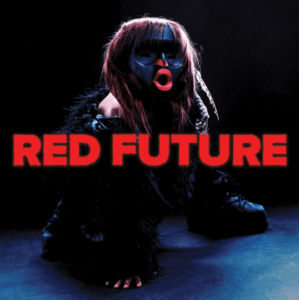Polaris 2023 Celebrates Another Great Year In Music

It’s that time of year again – tonight the Polaris Prize of $50,000 will be doled out to one of 10 nominated albums. Like always, the shortlist is wide-ranging. Many genres, some veteran nominees, some first timers and even a previous winner: Feist, who won back in 2012. Northern Transmissions caught up with Polaris’s stakeholder relations and communications manager Aaron Brophy in the days leading up to the big reveal to discuss the Prize, its history and what folks have to look forward to this year.
NT: So what I wanted to ask you is first off, could you define the Polaris Prize?
AB: So the Polaris Music Prize is exactly in the name: a music prize. It is awarded for the best Canadian album of the year based on artistic merit without regard for popularity, commercial sales, any sort of industry related criteria. Basically, it’s an art prize for a music album. And the way we do this is throughout the year we have a gigantic jury made up of music experts and media from across the country. There’s about 200 people from across Canada. They debate all year round, and then they make a 40 album long list. They debate that long list down to 10 albums. And then from that 10 albums, we make a special 11 member grand jury, and they intensely talk about those 10 albums. And that’s how we pick the winning album each year. And we’re right in the middle of it right now. The grand jury is debating this week. And then at Massey Hall in Toronto, Ontario, a number of the nominees will get on stage and perform. And then at the end of all of these performances we announce the year’s winning album.
NT: As someone who has been on the grand jury, I think it’s interesting to note that some of the discussion is happening right up until the night of the gala, that the decision-making process is kind of an ongoing thing. Things obviously have changed over time since before the pandemic, for instance, the grand jury used to meet in person on a very kind of intense sort of weekend, but now it seems like the grand jury has a little bit more time and space and room to engage with the albums and make a decision. Have you noticed anything in terms of changes like that over the course of the lifespan of the Polaris?
AB: In the first year I was a juror on the grand jury, before I ever became a staffer. And the process was wildly different than how we run it now. We didn’t know how sophisticated and complicated it should be to ensure that it’s a really fair process. It can be life and career changing for the winner. And as an organization, we take it seriously. So it has changed a number of times. We’ve sort of made sure our representation is a little bit better and more dynamic. We’ve made sure our debates are very clearly thought out. Here’s what you’re supposed to talk about. Here’s what you probably shouldn’t talk about. Here’s what you need to consider. We want to make sure that it’s smart, thoughtful. But we’ve put in place so many really small, just weird and intimate details into this process that it’s all with the goal of making sure we come up with a good decision.
NT: I think sometimes people see it as being a big mystery.
AB: We like that there’s an air of mystery. We like that the outside world doesn’t know everything that’s happening and that it’s kind of like a secret Papal conclave kind of scenario where the different colour smoke comes out when they finally pick their winner. But it’s basically like when you were a teenager with your best friends in the basement of someone’s house arguing about records. It’s the same thing except these are all experts and professionals doing the exact same thing each with their own vested interest because each grand juror is tasked with officially supporting one record.
NT: Can you explain to me the evolution of the prize and unique things that exist today in 2023 versus right at the beginning, and especially things that you’re particularly excited about for this year?
AB: The quickest history: Polaris Music Prize was created by a man named Steve Jordan, who’s basically a Canadian music executive who had the idea of what if I got 200 music critics together to just argue the best and figure out what the best album is. And then it grew from that idea started in 2006. Steve was the head of the organization until, I think it was about four or five years ago. Then he stepped down his immediate number two, Claire Dagenais took over for a couple of years in transition to help that happened right during the pandemic. We got through the pandemic thanks to Claire. And then Claire graciously stepped aside and after that we have hired Amber Moyle as our new executive director from formerly of Pride Toronto. So with Amber came a number of new, really ambitious things. The single biggest thing is that the Polaris Gala was always a little bit of an industry event and a bit of a cool kid private party. We still love the idea of our cool party, but we’re trying to make it less private and we’re trying to make a bigger deal of it. We have decided to do the Polaris Gala at Massey Hall this year. It is a big step up for us.
We’ve also done a number of things, smaller things, like we run something called the Polaris Cover sessions are exactly what they sound like. We get past Polaris nominees to do cover songs of other classic Canadian cover songs. We used to do them really simple in the studios, but now we’re trying to fancy them up and make nice videos. If you track those down, some of the ones we did this year are astounding. Our last one we dropped was Jeremy Dutcher covering Feist.
We’re good at creating a network with our jury, but we’re trying to create a bit of a spidery network in other ways too. This part is still a work in progress, but that’s our vision for the future, to be more locked in with all of these people all around the country that are doing all these kinds of things.
NT: And then that just leads to my last question, which is, if people who are not in Toronto, how can they experience this? How can they engage?
AB: The arguing about the records never stops and is eternal online on the internet. So that’s always there. As for the actual specific, this year’s gala, it is not live this year. The show will be polished up really nicely, and put on CBC Gem, I think on Friday. They’re cutting out all the pauses and between moments and everything, and then all the in-between intermissions, when we tell everybody to shut up and get back in their seats. Obviously the minute the winner gets announced, that will be all over the internet in various places. We’ll say who the winner is right away. But to take in the whole spectacle will be a couple days later just because we want it to look nice.
Here are the nominees:
Blue Rev – Alvvays
Watin – Aysanabee
Powder Blue – Begonia
Never Enough – Daniel Caesar
Multitudes – Feist
Good Luck – Debby Friday
Mascarade – Gayance
Being Somewhere – Dan Mangan
Colder Streams – The Sadies
I’m Good, HBU? – Snotty Nose Rez Kids
Latest Reviews
Tracks
Advertisement
Looking for something new to listen to?
Sign up to our all-new newsletter for top-notch reviews, news, videos and playlists.









